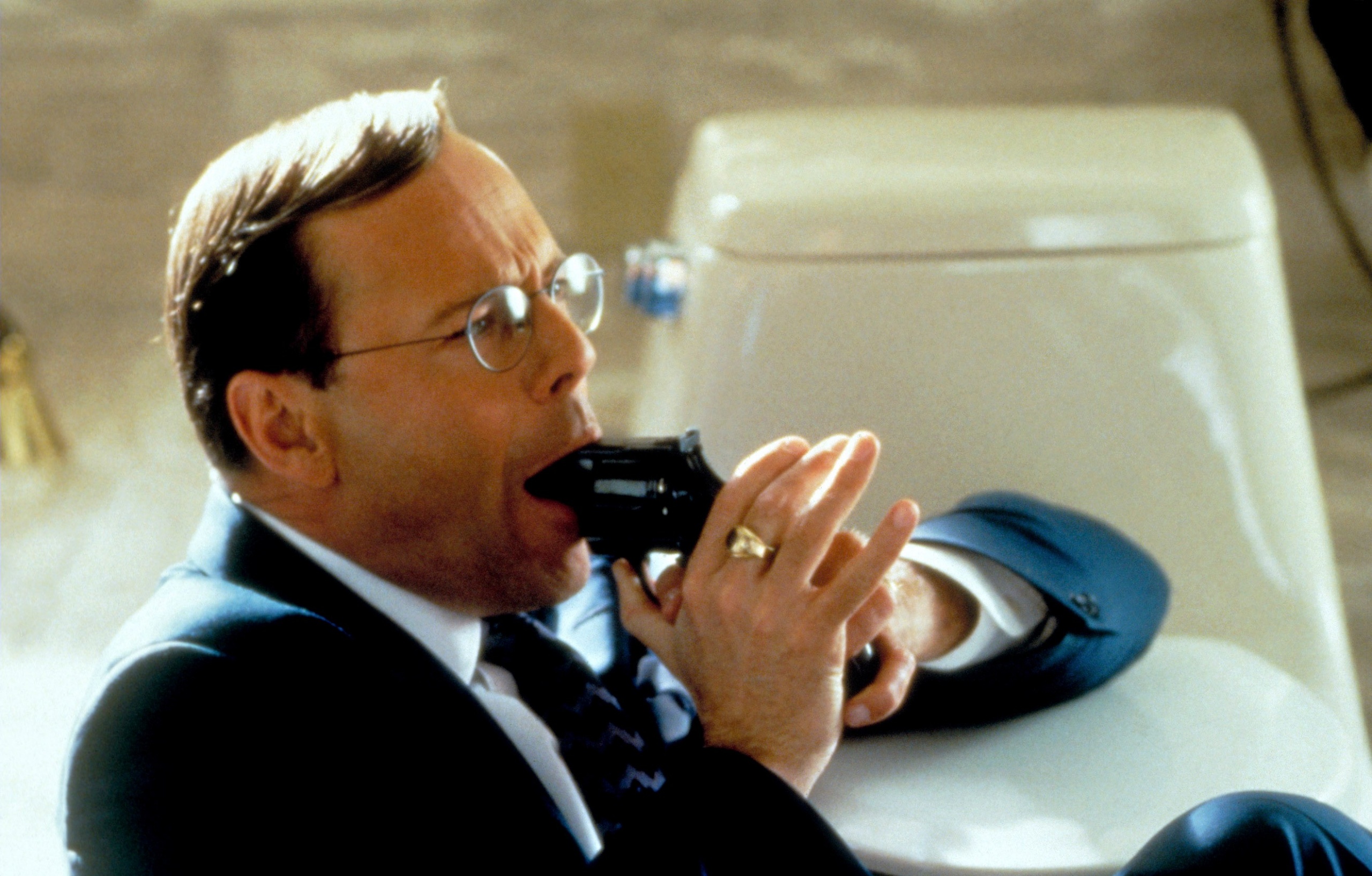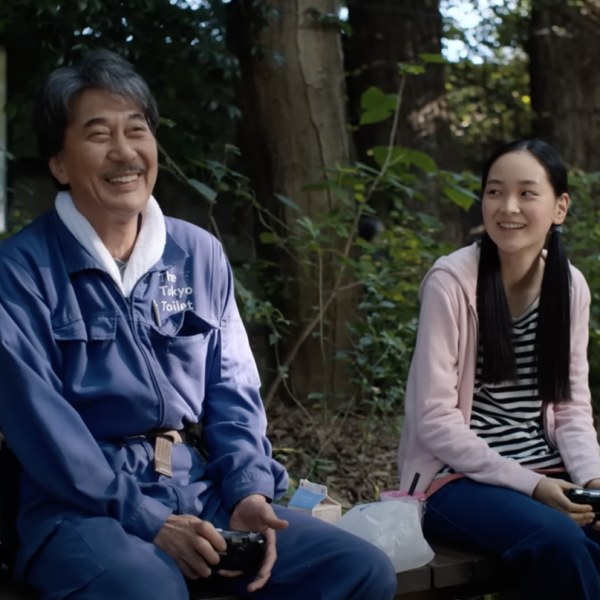25 years ago, writer/director Alan Rudolph realized a decades-long dream when he finally got to make his adaptation of Kurt Vonnegut‘s “Breakfast of Champions” with a cast that included Bruce Willis, Nick Nolte, Albert Finney, and Barbara Hershey, all operating at the peak of their talents. The tale of a smiling car dealership mogul (Willis) in the midst of a breakdown, “Breakfast” was one of Rudolph’s best films, a hilarious, prescient, and audacious portrait of not just a man, but a country losing its mind.
“Breakfast of Champions” was a deeply personal, fully realized work from one of the most interesting American filmmakers of his era. It was also a complete flop with audiences and critics.
“The film came out for two or three days and was radioactive,” Rudolph told IndieWire. “Breakfast” was so buried by the studio that released it that even its director couldn’t get his hands on a DVD until long after he made it. “I went to Wherehouse Records the day they were closing and found the DVD in the 99-cent bin. That was my only copy of the movie.”
Thankfully, Shout! Studios is now giving “Breakfast of Champions” a theatrical re-release via a beautiful new 4K restoration that should bring the movie the attention it has always deserved. Rudolph hopes that the time is finally right for audiences to appreciate the film’s lunacy and vision of an America whose values have gone completely out of whack. “If you take career considerations and the emotional and financial damage and throw all that aside, this may be the most illuminating time in the life of this film to release it,” he said.
“Breakfast of Champions” began life around 50 years ago, when Rudolph was working for his mentor, Robert Altman, and Altman asked him to adapt the novel. “He said, ‘Whatever you do, don’t follow the book,’” Rudolph said. “That was Bob.” When Rudolph read the book, he found that there was “life before ‘Breakfast of Champions’ and life after ‘Breakfast of Champions.’ I thought it was hilarious. It really reinforced my cynicism about American political and social change.”

The first question Altman would ask Rudolph whenever they were about to work on a new project was often who to cast. “Before he even got a script, he’d say, ‘OK, who are we going to put in it?’” Rudolph said. In the case of “Breakfast of Champions,” Rudolph had a novel idea: talk show host Johnny Carson as celebrity car dealer Dwayne Hoover.
“Carson had pledged never to do a movie, but he flirted with it for a while, which shocked everyone. But then he decided not to do it, and the movie never got made, and we moved on to ‘Buffalo Bill and the Indians.’”
Rudolph could never get the idea of “Breakfast of Champions” out of his mind, though, and over the years, he and producer David Blocker kept losing and reacquiring their option on the novel in the hope that it would someday get made. After years with no interest from financiers, the project finally came to life in the 1990s as a result of Rudolph’s work with Bruce Willis on “Mortal Thoughts,” a rare case in which the independent-minded Rudolph took on a studio assignment — an assignment that yielded not only one of Rudolph’s very best films but a performance that made Willis particularly proud.
“I think he got a taste of what I had learned coming up with Altman, which is, forget all the rest of the bullshit, this is what films are about,” Rudolph said. “Nobody should tell you what to do, nobody should meddle, and if you get a good idea, you chase it. A film is a living, breathing thing, and it’s your job to catch it and hold on. I think some of that rubbed off on him because he wasn’t very happy doing some of the Hollywood formula movies he was doing.”
After their happy experience on “Mortal Thoughts,” Willis wanted to work with Rudolph again and was intrigued by the “Breakfast of Champions” screenplay. “He read it and said, ‘Let’s go,’” Rudolph said. “I said, ‘When, a hundred years from now?’ And he said, ‘No, I’ll get the money as long as we don’t spend a lot. But I need to go now, as soon as possible.’ I don’t know where Bruce got the money, but he snapped his fingers, and a few months later, we were shooting.”
The fact that the financing came directly from Willis meant he and Rudolph had complete freedom to make the wildest comedy that they could, and their fearlessness is what makes “Breakfast at Champions” such a giddy pleasure. “We had no interference,” Rudolph said. The only problem came when the movie was finished, and it came time to distribute it. “The powers that be saw it and treated it like some kind of radioactive rock or a fatal disease. Everyone just pretended that it wasn’t there.”
Worse, critics attacked the film, finding it over the top — even though, as Rudolph points out, it doesn’t seem all that absurd by today’s standards. “If you watch the evening news now, this almost feels like a tame documentary compared to what’s going on in America,” Rudolph said. “We’ve just accepted the absurdity of our life. I think today, if anybody sees it, the movie might play a little better.”

Indeed, Willis’ portrayal of Hoover and Finney’s performance as the nonsensical literary guru to whom he looks for answers capture and predict a kind of cultural insanity that makes “Breakfast of Champions” almost as much a horror film as it is a comedy, depending on one’s perspective. Rudolph said that although he and Willis were on opposite sides of the political spectrum, they shared a desire to tap into the corruption and intellectual decay at the center of America’s media circus.
“I said to Bruce, ‘Look, this guy is a symbol for every politician in America who skirts around the truth,’” Rudolph said. “‘He doesn’t have to deal with the truth. Then when a little something deep within him questions who he is and how he got there, he has no facility to answer that. There’s just nobody home. Nothing there. So he has to look elsewhere for somebody to give him the truth, and the genius of Vonnegut is that he finds a guy who spouts nonsense and misinterprets that.’”
Seeing “Breakfast of Champions” in its new restoration is a reminder of what a vital voice Rudolph used to be in American cinema as the craftsman behind handmade, idiosyncratic and beautiful films like “Choose Me,” “Trouble in Mind,” “Mrs. Parker and the Vicious Circle,” and “Afterglow.” Aside from a return to the director’s chair in 2017 for “Ray Meets Helen,” he’s largely been away from filmmaking since “The Secret Lives of Dentists” was released in 2002.
“I haven’t been active for many years because everything changed,” Rudolph said. “Oddly enough, they gave people more freedom, but it’s more corporate than ever. I thought ‘The Secret Lives of Dentists’ was a nice piece of work, and it got nice reviews. It was doing really well. Then the distributor pulled the rug out, and nobody gave a rat’s ass, and I figured…why even try to make films?”
That said, Rudolph is excited for the unexpected rerelease of “Breakfast of Champions,” which he still regards as one of the most pleasurable experiences of his filmmaking career, and one of the most artistically successful. “It was one of the most reviled films in modern American cinema, and my proudest achievement,” Rudolph said. “So many of my films are unavailable. People ask me where they can find my movies. I don’t know, landfills, probably.”
Given that, Rudolph was thrilled when he learned “Breakfast” would be restored and remastered. “It was very curious. Ron Mann, a very celebrated Canadian documentary filmmaker who has a company called Films We Like, contacted David Blocker and asked how to get the rights to it. Bruce had the rights, and now the movie has a third act. It’s totally rewarding as a filmmaker, even if everybody still hates it.”
The 4K restoration of “Breakfast of Champions” opens in theaters on Friday, November 1.




